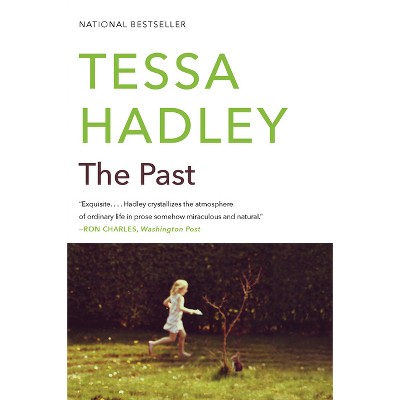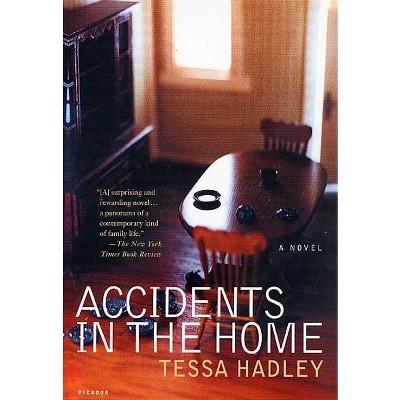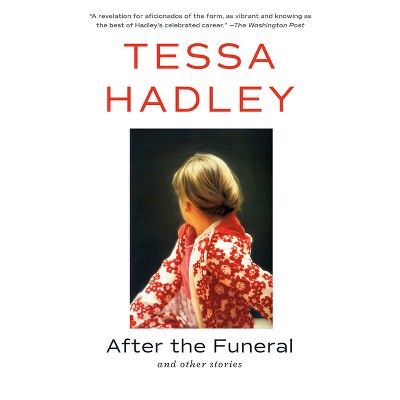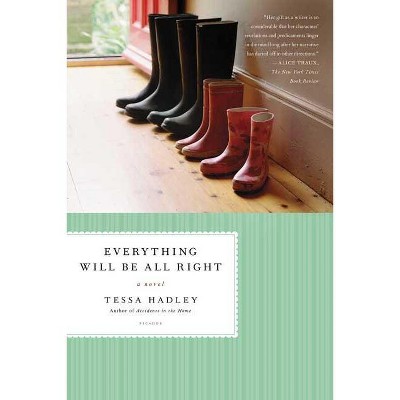Sponsored

The London Train - by Tessa Hadley (Paperback)
In Stock
Sponsored
About this item
Highlights
- In this New York Times Notable Book from one of today's most acclaimed writers, two lives stretched between two cities converge in a chance meeting that will irrevocably change their lives.
- Author(s): Tessa Hadley
- 352 Pages
- Fiction + Literature Genres, Literary
Description
About the Book
Two lives, stretched between two cities, converge in a chance meeting that has immediate and far-reaching consequences, in this compelling, sophisticated work from an acclaimed "New Yorker" writer.Book Synopsis
In this New York Times Notable Book from one of today's most acclaimed writers, two lives stretched between two cities converge in a chance meeting that will irrevocably change their lives.
"Hadley is a supremely perceptive writer of formidable skill and intelligence, someone who goes well beyond surfaces." --New York Times Book Review
Unsettled by the recent death of his mother, Paul sets out in search of Pia, his daughter from his first marriage, who has disappeared into the labyrinth of London. Discovering her pregnant and living illegally in a run-down council flat with a pair of Polish siblings, Paul is entranced by Pia's excitement at living on the edge. Abandoning his second wife and their children in Wales, he joins her to begin a new life in the heart of London.
Cora, meanwhile, is running in the opposite direction, back to Cardiff, to the house she has inherited from her parents. She is escaping her marriage, and the constrictions and disappointments of her life in London. But there is a deeper reason why she cannot stay with her decent Civil Service husband; the aftershocks of which she hasn't fully come to terms with herself.
Connecting both stories is the London train, and a chance meeting that will have immediate and far-reaching consequences for both Paul and Cora.
From the Back Cover
Unsettled by the recent death of his mother, Paul sets out in search of Pia, his daughter from his first marriage, who has disappeared into the labyrinth of London. Discovering her pregnant and living illegally in a run-down council flat with a pair of Polish siblings, Paul is entranced by Pia's excitement at living on the edge. Abandoning his second wife and their children in Wales, he joins her to begin a new life in the heart of London.
Cora, meanwhile, is running in the opposite direction, back to Cardiff, to the house she has inherited from her parents. She is escaping her marriage, and the constrictions and disappointments of her life in London. But there is a deeper reason why she cannot stay with her decent Civil Service husband--the aftershocks of which she hasn't fully come to terms with herself.
Connecting both stories is the London train, and a chance meeting that will have immediate and far-reaching consequences for both Paul and Cora.Review Quotes
"Elizabeth Bowen-like in its attention to nuance in language and behaviour, this concise novel also offers a sharp portrait of modern Britain." - Peter Parker, London Sunday Times
"The minds of Paul and Cora are so fully occupied by this most astute and sympathetic of writers....Hadley has crafted real excitement, so that each story ends in a flurry of curiosity and The London Train snaps shut with an effective twist." - Susanna Rustin, The Guardian
"[Hadley] is a writer who has always allowed her fiction space to breathe beyond its narrative borders. . . . Shows how language, deployed with precision or daring, can make thrillingly new the textures and undercurrents of everyday life." - Peter Parker, Sunday Times (London)
"Hadley is a close observer of her characters' inner worlds. Her language can be fine-grained, subtle, eloquent.... Hadley is a supremely perceptive writer of formidable skill and intelligence, someone who goes well beyond surfaces." - Jean Thompson, New York Times Book Review
"An acknowledged master of limning the Chekhovian mysteries of experience.... Paul's dilemma, as he is struggling to find a more authentic identity, recalls famous forebears like D.H. Lawrence, and his quick coupling with Cora brings to mind both Lawrence's celebration of sexuality and the sensual abandon of 'Anna Karenina'.... Hadley's special skill is of sketching her characters' inner world." - San Francisco Chronicle
"Tessa Hadley is a writer whose antennae are almost indecently attuned to the interior static of private lives....[M]asterly..." - Emma Hagestadt, The Independent
"Brings a quiet, nuanced intelligence to domestic fiction.... The London Train recasts these familial preoccupations in an intriguing, sophisticated structure.... Hadley, a meticulous stylist, has woven into her narrative reflections on memory and time."
- NPR
"Hadley exposes all the pitfalls inherent in relationships, yet miraculously leaves the reader buoyant with hope." - Kirkus Reviews (starred review)
"Powerful.... Ms. Hadley has a talent for the canny detail.... There are platoons of novelists producing work about middle-class marriages in disarray, most of it very dull. Ms. Hadley is one of the gifted exceptions, and the calm acuity with which she depicts these fractured relationships is haunting." - Wall Street Journal
"We should no more expect neatness from novels than we do from life, and Hadley...is a writer who has always allowed her fiction space to breathe beyond its narrative borders. . . . The London Train also offers a sharp portrait of contemporary Britain. This, being the work of a woman, is of course far better observed, more subtly conveyed and a great deal less preening than those "state-of-the-nation" novels to which so many male writers aspire. Admirably concise and attentively detailed, it outshines them all." - Sunday Times (London)
"Hadley's strength lies in her characterization. . . . . There's something pleasingly human about them. With characters like these Hadley makes us wonder what forms our own darkness takes." - Richard Platt, TimeOut (London)
"Spectacular....A compelling and serious page-turner." - Anna Shapiro, The Observer (London) on Accidents in the Home
"Impressive. . . . a triumph of form." - Ti Sperlinger, Independent on Sunday (London)






